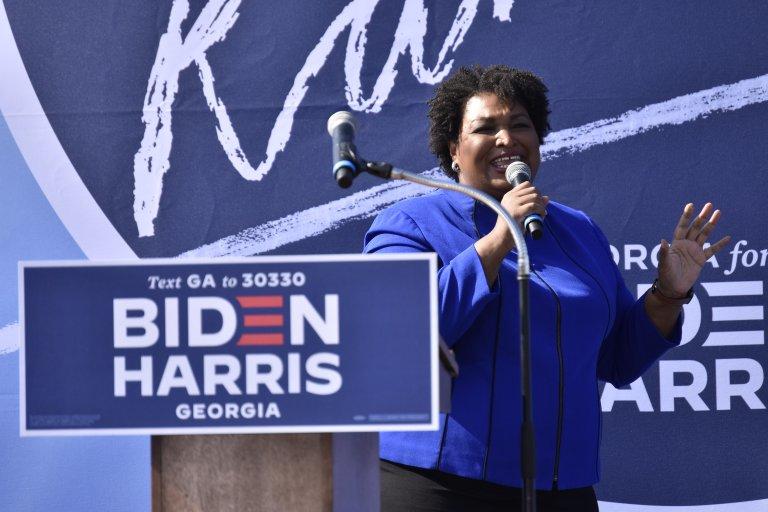
Caption
Democrats are crediting Stacey Abrams for the success of President-elect Joe Biden in Georgia and establishing the state's battleground status by blazing a path through Atlanta's northern suburbs. She took a star turn at a recent presidential campaign event in Atlanta.
Credit: Ross Williams

